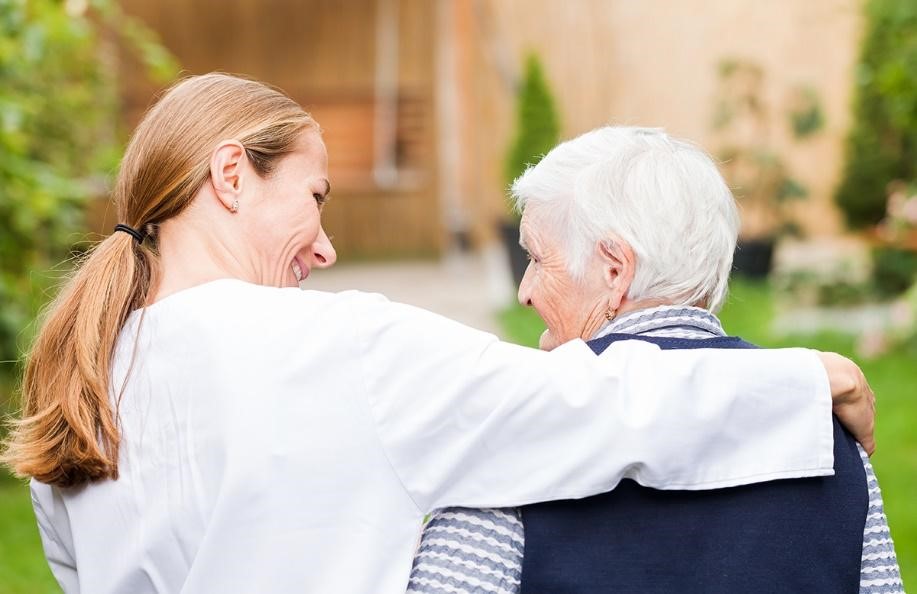Nutrition plays a crucial role in maintaining health, preventing diseases and promoting overall well-being. However, as seniors age, their nutritional requirements change.
Beyond providing personal care assistance and medication management, the primary caregiver, often a family member or a hired professional, serves as a vital partner in making sure that our elderly family members receive adequate nutrition. This includes assisting in meal planning, preparation and monitoring dietary needs. In this blog, we’ll explore the importance of nutrition for older adults and how the job duties of in-home caregivers can effectively support their elderly care recipient in maintaining a healthy diet.
Importance of Nutrition for the Elderly
As people age, they commonly experience a decline in appetite, alterations in metabolism, reduced nutrient absorption and heightened susceptibility to chronic ailments, like cardiovascular disease, osteoporosis and cognitive decline. Sufficient nutrition becomes vital for sustaining overall health and enhancing quality of life during this life stage.
Nutrition plays several critical roles in the health of elderly individuals, including:
- Maintaining physical health: Proper nutrition supports immune function, muscle strength, bone health and wound healing, reducing the risk of infections, fractures and other health complications.
- Cognitive function: Nutrient-rich diets, particularly those high in antioxidants and omega-3 fatty acids, are associated with better cognitive function and a reduced risk of dementia and cognitive decline.
- Management of chronic conditions: Certain medical conditions become more prevalent with age, such as hypertension, diabetes and arthritis. Nutrition is essential in effectively managing these conditions and preventing potential complications.
- Emotional well-being: Ideal nutrition fosters mental health and emotional well-being, reducing the probability of depression and elevating the overall quality of life.
Chagrin Falls In-Home Caregivers’ Role in Supporting Nutrition
In-home caregivers play a pivotal role in maintaining optimal nutrition for their elderly clients by providing personalized assistance in meal planning and preparation, and monitoring dietary needs. Here’s a deeper look at these duties.
Plan meals
An in-home care provider can collaborate with clients and their family members to develop meal plans that meet individual nutritional requirements, preferences and dietary restrictions. They consider factors, such as calorie needs, nutrient intake, food allergies and cultural preferences, to create balanced and appetizing meals that tend to their personal care.
Prepare meals
The in-home caregiver can prepare nutritious meals and snacks according to the established meal plans, ensuring that they are not only healthy but also appealing and enjoyable for the clients. They may assist with grocery shopping, meal cooking, portion control and mealtime setup to facilitate the consumption of nutritious foods.
Monitoring dietary needs
Caregivers monitor the dietary habits and nutritional status of elderly clients, observing changes in appetite, weight, hydration and overall health. They communicate with healthcare professionals to address any concerns and make necessary adjustments to the meal plans to accommodate changing dietary needs or health conditions.
Providing emotional support during meals
Beyond just preparing meals, caregivers offer companionship and support during mealtimes, fostering a positive dining experience for elderly clients. They engage in meaningful conversation, encourage independence when appropriate and provide assistance with feeding as needed. All of this promotes social interaction and emotional well-being.
Diet plays a critical role in furthering health and well-being among elderly clients, and in-home caregivers are essential partners in ensuring that they receive adequate nutrition. By assisting in meal planning, preparation and monitoring dietary needs, caregivers help elderly individuals maintain optimal nutrition, prevent health complications and enhance their overall quality of life. Recognizing the importance of diet in elderly care and the valuable contribution of in-home caregivers is essential for supporting the health and vitality of aging populations.
Contact Cherished Companions for More Information on In-Home Care Services
Cherished Companions specializes in exceptional in-home care services, offering personalized assistance to elderly individuals. Our dedicated team recognizes the importance of family caregivers and strives to complement their efforts by providing professional support and respite care when needed. With a focus on maintaining the highest standards of care, our caregiver in-home services encompass a wide range of duties, including personal care assistance, medication management and nutritional support.
Oftentimes there may be questions on how to pay for home care services. There are various financial options available through the local area agency on aging and local Medicaid office that may be available and we’d be happy to go over them with you. Contact us today for more information.






